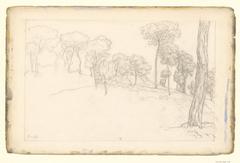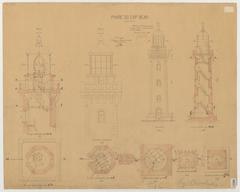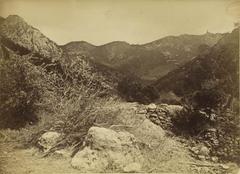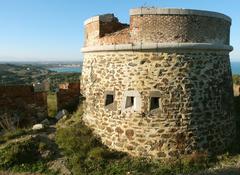Temple Protestant in Collioure: Visiting Hours, Tickets, and Travel Guide
Date: 14/06/2025
Introduction
The Temple Protestant of Collioure stands in the heart of this picturesque Mediterranean town, quietly bearing witness to centuries of religious history, cultural dialogue, and architectural evolution. As a living place of worship and an understated architectural gem, the temple is a compelling stop for visitors seeking to understand Collioure’s unique blend of faith, art, and community. This detailed guide covers the temple’s historical background, architectural features, visiting hours, accessibility, and practical visitor tips, ensuring a rewarding experience for anyone exploring Collioure’s historical sites (Visit Collioure; Archi-Wiki; Musée Protestant; barefootblogger.com).
The Temple Protestant in Collioure: History and Significance
Historical Roots
The story of Protestantism in Collioure is closely linked to the wider religious and political upheavals of France from the 16th century onward. The Protestant Reformation found a foothold in the Pyrénées-Orientales, especially during the Wars of Religion (1562–1598), though Collioure remained predominantly Catholic (Wikipedia: Edict of Nantes). The Edict of Nantes in 1598 granted limited freedoms to Protestants, but its revocation in 1685 led to renewed persecution and clandestine worship (Wikipedia: Protestantism in France). Despite these challenges, small Protestant communities persisted in the region.
Following the French Revolution and the Concordat of 1801, Protestants were recognized as a legal religious group, allowing for the open establishment of places of worship (Wikipedia: Concordat of 1801). By the late 19th and early 20th centuries, Protestants in Collioure had the opportunity to build a dedicated temple, marking their enduring presence in the town.
Construction and Architecture
The Temple Protestant was designed by Danish architect Viggo Dorph Petersen and inaugurated in 1906 (Visit Collioure). Unlike the ornate Catholic churches in Collioure, such as Notre-Dame-des-Anges, the temple’s architecture is modest and functional, reflecting the Reformed emphasis on simplicity and the centrality of scripture (Musée Protestant). The building’s rectangular plan, plain walls, and clear windows create a welcoming space for communal worship and contemplation.
The temple is discreetly situated on the Carrefour du Christ, blending harmoniously with the residential surroundings and embodying the values of humility and introspection. Recently restored, its façade maintains the original colors required for heritage-listed monuments (Archi-Wiki; Amis du Temple de Collioure).
Community Role and Cultural Life
The Temple Protestant is more than a place of worship; it serves as a center for community events, concerts, and lectures. Throughout its history, the temple has hosted baptisms, weddings, funerals, and educational activities, supporting the Protestant community’s spiritual and social needs. During World War II, Protestant churches in southern France—including those in the Pyrénées-Orientales—were often involved in humanitarian efforts (Wikipedia: Protestantism in France).
Today, the temple is affiliated with the United Protestant Church of France (Église Protestante Unie de France), which unites Reformed and Lutheran traditions. It participates in local festivals, interfaith dialogues, and cultural events, fostering Collioure’s reputation as a place of openness and creativity (barefootblogger.com).
Visitor Information: Hours, Tickets, and Access
Location and Getting There
The Temple Protestant is centrally located in Collioure’s old town, close to major attractions like the Château Royal and Notre-Dame-des-Anges. Collioure train station is about 700 meters from the seafront, and public parking is available on the outskirts of the pedestrian zone (exploreyourbucketlist.com). The old town is best explored on foot, with the temple serving as a peaceful stop amid bustling streets.
Opening Hours
- Summer (June–September): Open daily from 10:00 AM to 6:00 PM.
- Off-season (October–May): Open Sundays from 10:00 AM to 12:00 PM and by appointment.
Hours may vary during religious holidays or special events. Always check with the Collioure tourist office or on-site notices for current information (Visit Collioure).
Tickets and Admission
Visiting the Temple Protestant is free of charge. Donations are welcomed to support preservation and community activities.
Accessibility
- Wheelchair Access: The entrance is at street level, and wheelchair access is available. Some surrounding streets have uneven paving, so assistance may be helpful.
- Restrooms: Public facilities are available in the town center.
What to Expect: Architecture, Atmosphere, and Activities
Architectural Highlights
The temple’s understated design, with a rectangular nave, simple façade, and large windows, reflects the Reformed tradition’s focus on clarity and community (Musée Protestant). Inside, wooden pews, a central pulpit, and natural light create a tranquil environment for worship and reflection.
Services and Events
Regular worship services are held on Sunday mornings, open to all visitors. The temple also hosts concerts, lectures, and art exhibitions, particularly in the summer months. Event schedules are posted at the entrance or available through the tourist office.
Visitor Guidelines
- Modest dress is recommended, especially during services.
- Photography is allowed outside of service times; flash should be avoided.
- Maintain respectful silence in the temple, particularly during worship or prayer.
Combining Your Visit: Nearby Collioure Historical Sites
While visiting the Temple Protestant, consider exploring:
- Château Royal: A medieval fortress with panoramic views.
- Notre-Dame-des-Anges Church: Known for its distinctive bell tower.
- Collioure’s harbor and waterfront: Vibrant with cafes and galleries.
- Art museums and galleries: Showcasing Fauvist painters and local artists.
Walking tours often include the temple as part of a broader exploration of Collioure’s religious and artistic heritage (talesfromthelens.com).
Practical Tips and Recommendations
- Best Time to Visit: June offers pleasant weather and fewer crowds. Early mornings or late afternoons provide a quieter experience (wanderlog.com).
- Languages: French is primary, but English is understood during tourist season and at major events.
- Family and Group Visits: The temple welcomes families and groups; educational visits can be arranged through the tourist office.
- Nearby Amenities: Cafés, bakeries, restaurants, and shops are within easy walking distance. Accommodations range from boutique hotels to guesthouses (forbes.com).
Frequently Asked Questions (FAQ)
Q: What are the Temple Protestant Collioure visiting hours?
A: Summer: daily 10:00 AM–6:00 PM; off-season: Sundays 10:00 AM–12:00 PM and by appointment.
Q: Is there an entrance fee or tickets required?
A: No. Admission is free; donations are appreciated.
Q: Is the temple accessible for visitors with reduced mobility?
A: Yes, with street-level access and assistance available upon request. Surrounding streets may have uneven surfaces.
Q: Can I take photographs inside the temple?
A: Yes, outside of worship times and without flash.
Q: Are guided tours available?
A: Guided tours can sometimes be arranged through the tourist office, especially during peak season.
Q: What other historical sites should I visit nearby?
A: Château Royal, Notre-Dame-des-Anges, the harbor, and local art galleries.
Conclusion
The Temple Protestant of Collioure is a peaceful and enriching destination, offering insight into the town’s religious heritage, architectural elegance, and spirit of community. Its understated beauty stands in contrast to Collioure’s more ornate Catholic landmarks, making it an essential stop for those interested in the region’s multifaceted identity. Attend a Sunday service, enjoy a concert, or simply reflect within its walls—you’ll leave with a deeper appreciation for Collioure’s vibrant history.
For the latest visiting hours and event schedules, consult the Collioure tourist office or the official Protestant community website. To further enrich your experience, download the Audiala mobile app for audio guides, local tips, and up-to-date information on Collioure’s landmarks.
Further Resources and Official Links
- Collioure Locals Guide
- Archi-Wiki
- Visit Collioure
- Barefoot Blogger
- Explore Your Bucket List
- Wikipedia: Protestantism in France
- Wikipedia: Edict of Nantes
- Wikipedia: Concordat of 1801
- Wikipedia: Collioure
- Musée Protestant
- Forbes
- Wanderlog Collioure Guide
- Tales from the Lens
- Amis du Temple de Collioure




